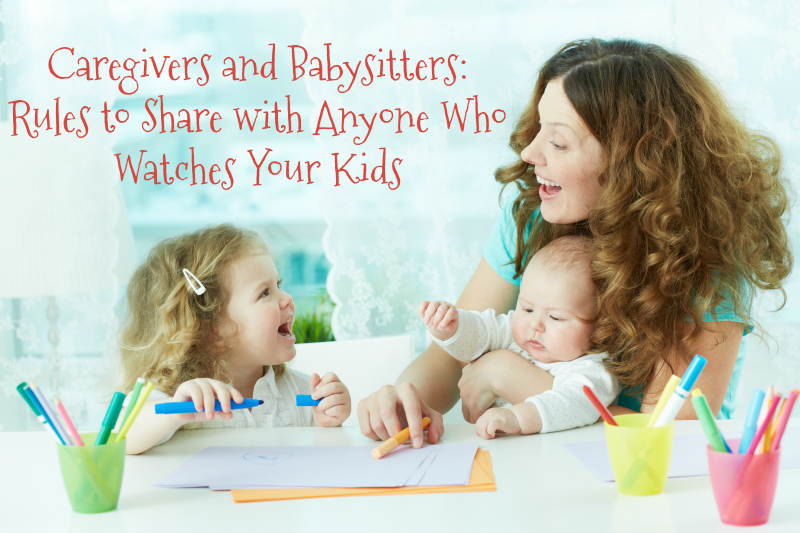Leaving your child in someone else’s care for the first time is a big step. Apart from the psychological challenges of handing over temporary responsibility and dealing with your separation anxiety, there are all the fears about what could happen if something goes wrong. Will your babysitter keep a cool head and react appropriately? Can you be contacted and can you get home in good time? One thing you can do to ease your tension is to prepare a clear list of guidelines for your babysitter.
A Never-Ending Quest
As your kids get older, you will build up a regular reservoir of trusted babysitters, but there will inevitably be times when none of them is available and you will have to rely on a new sitter. Fortunately, there are web-based ways to find a babysitter near you who is experienced and reliably reviewed, but it’s still helpful to dig out your tried and tested list and run through the rules.
Before you step out the door, you will want to be confident that your sitter understands not only the basic requirements of the job but also your own expectations. Treat the visitor with respect—you don’t want a reputation as the difficult parent no one will sit for—but politely draw attention to what you want.
House Rules
Your house rules will be your own, but the following are a starting point:
- No visitors. Nobody should be allowed to come into your house whom you have not personally approved.
- Nothing should be watched on TV that is not suitable for children to witness. TV should be kept at a low volume so that the sitter can always hear the children.
- No smoking, alcohol or drug use.
- No raiding your cupboards—it is better to provide a supply of snacks and drinks.
Safety First
The safety of your children is your number one priority. Be sure that your sitter has the information she needs and is confident about using it:
- Leave the first aid kit in a prominent place, and show the babysitter where it is. Also show her where the fire extinguisher is kept, and the best way to get the children out of the property in the event of a fire.
- If your child has any health issues, inform the babysitter of the correct procedures to follow. If there are allergies, list clearly the foods that must be avoided, and check that she knows how to use an Epipen if necessary.
- Provide a clear list of emergency phone numbers, including your cell, the place you are going, another adult contact, your doctor, and the emergency services. The babysitter should never be embarrassed about calling for help. You may consider leaving a medical release form to authorize emergency treatment.
- Children should not be taken out of the house unless there are specific arrangements to do this.
Building a Team
A really successful babysitter will not only keep your children safe, but will also build a rapport with them so that they look forward to seeing her.
- Explain routines, to help the sitter create an atmosphere of normality and security. If you have situations that are guaranteed to spark a tantrum, let your sitter know how to avoid them. Explain your policy on using treats and bribes.
- Put everything the babysitter might need—diapers, pacifiers, teddies, etc—together in one place, so that they do not have to leave your children at a crucial moment to search for them.
- Point out the favorite toys and the best stories to achieve calm. Calming down excited or distressed children is a skill learned with time, but knowing what usually works with your family will certainly help.
- However boisterous your children, insist that games are gentle while you are not in the house. It is easy for accidents to happen when things get too exciting.
Don’t be all about the negatives. Encourage your sitter to use their own experience and skills to build a relationship with your children. Expect them to discover new tricks to share with you.
Use Your Head
Most of the rules about looking after other people’s children boil down to using common sense but even so, an inexperienced babysitter needs help to learn them. In a mobile age when grandparents and relatives are not always on hand, there is an increasing need for reliable babysitters. By giving clear guidelines, you can play your part in building the next generation.
James Blewitt served honorably in the Marine Corps before receiving an Associates in business and then founding his online consulting company in 2003. His main focus is spotting the current online trends and finding how they can make life easier for business owners as well as the individual consumer. He currently resides in Pittsburgh, PA.
